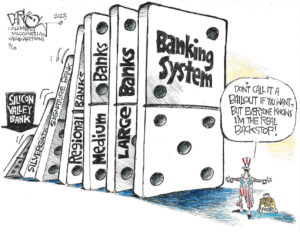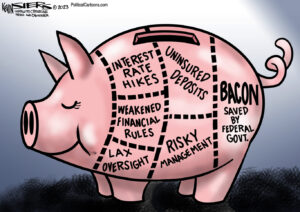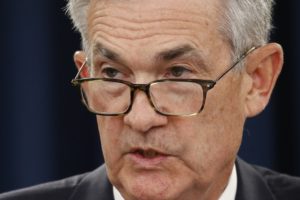Paul Krugman: Big Government Prevented a Second Depression
The Nobel Prize-winning economist writes that "around a million more Americans are working now than would have been employed without that [stimulus] plan " He also argues that "it’s possible to be dissatisfied, even angry, about the way the financial bailouts have worked while acknowledging that without these bailouts things would have been much worse".The Nobel Prize-winning economist writes that “around a million more Americans are working now than would have been employed without that [stimulus] plan. … ” He also argues that “it’s possible to be dissatisfied, even angry, about the way the financial bailouts have worked while acknowledging that without these bailouts things would have been much worse.”
Krugman’s analysis touches on a number of factors: the ability of the federal government to run deficits to pay federal workers and maintain the safety net (such as it is), the stimulus boost of the American Recovery and Reinvestment Act and the hands-on approach to the banking crisis, which, the columnist admits, “should have been handled better.”
Your support matters…New York Times:
In addition to having this “automatic” stabilizing effect, the government has stepped in to rescue the financial sector. You can argue (and I would) that the bailouts of financial firms could and should have been handled better, that taxpayers have paid too much and received too little. Yet it’s possible to be dissatisfied, even angry, about the way the financial bailouts have worked while acknowledging that without these bailouts things would have been much worse.
The point is that this time, unlike in the 1930s, the government didn’t take a hands-off attitude while much of the banking system collapsed. And that’s another reason we’re not living through Great Depression II.
Last and probably least, but by no means trivial, have been the deliberate efforts of the government to pump up the economy. From the beginning, I argued that the American Recovery and Reinvestment Act, a k a the Obama stimulus plan, was too small. Nonetheless, reasonable estimates suggest that around a million more Americans are working now than would have been employed without that plan — a number that will grow over time — and that the stimulus has played a significant role in pulling the economy out of its free fall.
Independent journalism is under threat and overshadowed by heavily funded mainstream media.
You can help level the playing field. Become a member.
Your tax-deductible contribution keeps us digging beneath the headlines to give you thought-provoking, investigative reporting and analysis that unearths what's really happening- without compromise.
Give today to support our courageous, independent journalists.




You need to be a supporter to comment.
There are currently no responses to this article.
Be the first to respond.